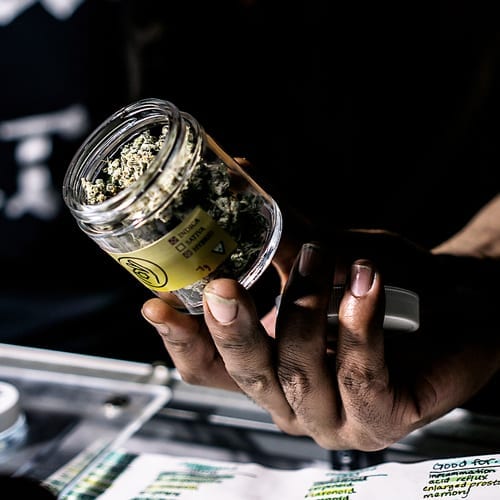
LAS VEGAS – There are new developments on the marijuana front. More litigation is coming against the state from nearly a dozen dispensaries that were left out of the latest round of licenses awarded by regulators.
This comes as the tax commission canceled a meeting set for Monday where questions were likely to be raised about this issue.
Monday, attorney and former Secretary of State Ross Miller will be filing a motion on behalf of 11 dispensary owners in an ongoing lawsuit against the Nevada Department of Taxation.
The owners allege the department — which oversaw the scoring and approval of dispensary license applications — are leaving them and the public in the dark.
There were 462 applications for 61 new marijuana dispensary licenses in 2018. On Dec. 11, 8 News Now began to learn who received them — and who didn’t.
“When we found out we didn’t get any licenses, I was just flabbergasted,” said John Ritter, The Grove Dispensary.
Longtime Las Vegas businessman John Ritter is a board member with The Grove Dispensary. He was notified that he did not receive a license but there were no further details.
“But what criteria did they use to score these? And he said, ‘I can’t tell you,’ ‘You can’t tell me how the process ran, you can’t tell me what criteria was used?’ ‘No, I can’t tell you any of that,'” Ritter explained.
The regulations that govern the state’s cannabis industry outline a process where applications are scored and ranked based criteria including the experience of the owners, whether they operate other establishments, diversity, financial plans and amount of taxes paid.
The state has not released the names of who was awarded the licenses but 8 News Now has been able to account for who received most of the licenses through press releases and general inquiries.
Thirty-eight of the 61 licenses — 62 percent — went to just six companies.
When Ritter and others learned of this, they wanted to find out how they scored which is all the state would let them know.
But beyond that — like how their scores ranked against those who won licenses is a mystery.
“They would just show you your scores, and the minute that you started asking questions, they’d say ‘Oh, we can’t answer that,’ can’t answer that, can’t answer that.'” Ritter said.
8 News Now also requested that information from the state on December 10th. Citing a law passed ahead of the roll-out of the state’s medical marijuana program in 2013, the Department of Taxation says much of the information on the applications and subsequent scores are not public information.
In January, 8 News Now received a spreadsheet of the dates and times each application was received, though the names of the applicants are not listed.
Ritter’s attorney, Ross Miller, has run into similar issues.
“I think the justification offered by the department as to why this has been so secret is absolute nonsense,” said Ross Miller, partner, GCMAS Law.
Miller questions the Department of Taxation’s interpretation of the privacy law related to these applications.
Tick Segerblom, an attorney and the then-state senator largely behind getting the state’s marijuana industry up-and-running, also questions the interpretation.
Miller also takes issue with who scored the applications.
“I’m alarmed by the fact that they used temp workers, they won’t tell us the identity of who those temp workers were. Certainly, if they were state employees, we’d all be able to look, they’d be on the government payroll,” Miller said.
Monday, Miller will file a motion asking a judge to halt the licensing process.
If any issues are found, Miller and his clients want to see a re-do on this most recent round of dispensary license applications.
Stephanie Klapstein with Nevada Department of Taxation says the agency does not comment on pending litigation, but to questions about the process, she sent the following statement:
“From the outset, the Department has been as transparent as we can without violating the confidentiality of license applicants. Two months prior to the application period opening, we published on our website the application criteria, point values, and the process we would use for scoring and ranking applications. We requested confidentiality waivers from each applicant that would have allowed us to share their name, score, ranking, and whether they had received a license or not. Out of the 126 businesses that applied, only nine gave us permission to disclose their information. We have available on our website a list of all scores and ranks by jurisdiction, but we’re unable to publish the names of the businesses that did not provide consent. The Department remains committed to the principle of transparency and will continue to provide it in every manner possible that does not put us in violation of Nevada law or administrative code.”
Regarding the concentration of licenses to a small number of applicants, Klapstein said the following:
“There are antimonopoly provisions in current regulation that limit the number of retail store licenses one person, group of persons or entity can be awarded within a county, however there are no provisions in the law or regulations that limit the number of counties in which they could obtain a store license. While we do sympathize with the frustrations of those who did not get licenses, it stands to reason that those entities that submitted the strongest applications and scored the highest would have ranked in the top of the applicant pools within the jurisdictions they applied”
Source: LasVegasNow.com





